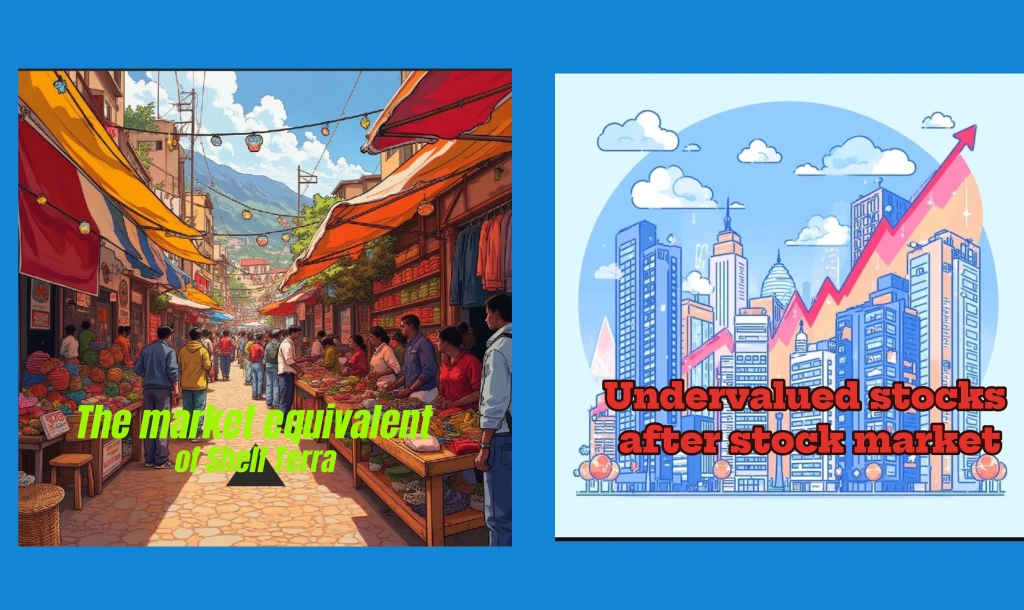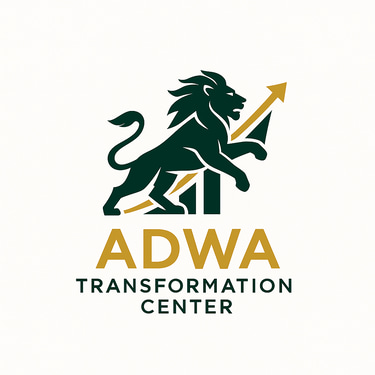🤫 Psst...Want in on a Secret Before Everyone Else? 🤫
The whispers are getting louder. Ethiopia's stock market is about to open, and with it, a flood of opportunities... and potential profits. But savvy investors know the real treasures are often found before the crowds arrive. Imagine getting your hands on undervalued bank shares (axions) now, while they're still trading under the radar. Picture yourself holding those shares as the market explodes, their value skyrocketing as everyone else scrambles to catch up. This isn't a fantasy; it's a strategic opportunity. But how do you find these hidden gems? How do you separate the diamonds from the rough in Ethiopia's unique financial landscape? In this blog post, we'll reveal the secrets to uncovering undervalued axions before they hit the spotlight. We'll equip you with the tools and knowledge to navigate this exciting pre-stock market terrain, so you can position yourself for maximum gains. The stock market is a device for transferring money from the impatient to the patient. - Warren Buffett..... Are you ready to be patient... and profitably impatient? Read below to unlock the secrets. (By Dr Abush Ayalew)
10/1/202412 min read


Looking back, I realize those days spent honing my bargain-hunting skills in the dusty aisles of Shelf Terra were more than just a childhood pastime. They were unknowingly shaping my future as an investor. Because, let's face it, whether you're digging for treasure in a pile of clothes or an undervalued stock in the financial market, the principles are surprisingly similar. It's about seeing potential where others see only clutter, and recognizing quality even when it's wearing a discount price tag.
Fast forward to today, and that same thrill of the hunt drives me to explore the exciting, albeit somewhat chaotic, world of Ethiopian axions. These shares, traded outside the confines of a formal stock market, offer a unique opportunity for savvy investors to uncover hidden value. But just like navigating Shelf Terra, it requires a keen eye, a bit of patience, and a willingness to rummage through the metaphorical piles of discarded fashion choices (or in this case, overlooked stocks).
In this article, I'll share my journey from Shelf Terra to the world of finance, and I'll guide you through the strategies I've learned for identifying undervalued axions in Ethiopia's unique financial landscape. We'll dive into key metrics, explore the challenges and opportunities, and navigate the risks together. So, put on your metaphorical bargain-hunting hat, and let's embark on this exciting adventure!
"The stock market is filled with individuals who know the price of everything, but the value of nothing." – Phillip Fisher
Understanding the Landscape -
Where the Axions Roam Free
Leaving the vibrant chaos of Shelf Terra behind, let's step into the equally fascinating, albeit less tangible, world of Ethiopian finance. Here, "axions" – shares of Ethiopian banks – aren't found in overflowing baskets but traded in the digital realm, primarily through social media platforms. It's like Shelf Terra went online, with all its excitement and its own unique set of challenges.
Now, you might be thinking, "Hold on! No stock market? How on earth do you determine the value of these axions?" That's a great question, and it highlights the first hurdle we face. Without a centralized exchange, there's no official record of transactions, no ticker tape parade of prices, and no readily available historical data. It's like trying to find a specific pair of jeans in Shelf Terra without any organization – a bit of a wild goose chase.
But here's the flip side: this lack of formal structure also creates unique opportunities. Think about it. In an efficient market, where information flows freely and prices adjust instantly, finding undervalued assets is like finding a needle in a haystack. But in Ethiopia's informal axion market, inefficiencies abound. This means there's a greater chance of uncovering hidden gems, those diamonds in the rough, just waiting for a savvy investor to recognize their true worth.
The Key Metrics
So, how do we navigate this exciting yet unpredictable terrain? Just like I relied on my keen eye for quality and value back in Shelf Terra, we need tools to guide us in the financial world. That's where key metrics like Return on Assets (ROA), Return on Equity (ROE), and the Loan-to-Deposit ratio (LTD) come into play. These are our financial magnifying glasses, helping us zoom in on a bank's profitability, efficiency, and risk management.
Imagine an Ethiopian bank with a consistently high ROA and ROE, meaning it's effectively generating profits from its assets and shareholder investments. Now, let's say its LTD ratio is relatively low, indicating a conservative approach to lending and lower risk. If this bank's axions are being traded at a surprisingly low price on social media, it could be a flashing neon sign screaming "Undervalued!"
But hold your horses! Before you rush off to grab those seemingly "cheap" axions, remember that navigating this market requires more than just looking at numbers. In the next section, we'll get deeper into specific strategies for identifying those undervalued gems, just like I learned to spot those hidden treasures in the depths of Shelf Terra.
Strategies for Identifying Undervalued Axions - Sharpening Your Bargain-Hunting Instincts
Alright, fellow treasure hunters, it's time to equip ourselves with the tools and tactics needed to navigate the exciting world of Ethiopian axions. Remember those days at Shelf Terra, where a keen eye and a bit of patience could unearth incredible finds? The same principles apply here, but instead of sifting through piles of clothes, we'll be analyzing financial data and market trends.
1. Peer Comparison: Sizing Up the Competition
Just like I used to compare a potential purchase with similar items at other stalls in Shelf Terra, we need to benchmark our Ethiopian bank axions against their peers. But where do we find these "peers" when there's no formal stock market?
Look Beyond Borders: Cast your net wider and identify publicly traded banks in comparable markets. Think of countries with similar economic structures or those facing similar challenges. Kenya, Nigeria, or even some banks in Southeast Asia could provide valuable benchmarks.
Data is Your Friend (When You Can Find It): Scour financial websites, databases, and research reports to gather those crucial metrics: ROA, ROE, and LTD ratio. Remember, these are our financial measuring sticks.
Compare and Contrast: Now, the fun part! Compare the Ethiopian bank's metrics with those of its peers. Is the ROA significantly higher? Is the ROE outperforming the competition? A lower LTD ratio could indicate a more cautious lending approach, potentially signaling lower risk. These discrepancies could be hints of undervaluation.
Let's say "Bank A" in Ethiopia boasts an ROA of 3% and an ROE of 20%, while a comparable bank in Kenya shows an ROA of 2% and an ROE of 15%. If Bank A's axions are trading at a lower price relative to its Kenyan counterpart, it might be a sign that the market hasn't fully recognized its superior performance.
2. Historical Trend Analysis: Spotting the Rising Stars
Remember how I used to track the prices of certain items in Shelf Terra over time, noticing which ones were consistently in demand? We can apply a similar approach with axions.
Digging into the Past: Unearth historical financial data for the Ethiopian banks you're interested in. Annual reports, if available, can be goldmines of information. Financial news outlets and research reports might also provide valuable historical data.
The Trend is Your Friend: Analyze the trends in ROA, ROE, and LTD ratios over time. Is the ROA steadily climbing? Has the ROE been consistently outperforming the industry average? A stable or declining LTD ratio could indicate prudent risk management. These positive trends could suggest undervaluation if the share price hasn't kept pace.
Imagine "Bank B" in Ethiopia has seen its ROA increase from 1.5% to 2.5% over the past five years, while its share price has remained relatively stagnant. This could indicate that the market hasn't fully priced in the bank's improving profitability.
3. Qualitative Factors: Beyond the Numbers
Just like I learned to assess the quality of a garment beyond its appearance (for example its brand tag) in Shelf Terra, we need to look beyond the numbers when evaluating axions.
The X-Factors: Consider the bank's management team, its competitive advantages, and its position within the Ethiopian financial landscape. Is it known for innovation? Is it expanding into underserved markets? These qualitative factors can significantly impact a bank's long-term prospects.
Due Diligence is Key: Don't rely solely on numbers. Talk to people, read industry reports, and gather as much information as possible about the bank and its competitive landscape. Remember, investing is like detective work – the more clues you gather, the better your chances of cracking the case.
"Bank C" might have slightly lower ROA and ROE compared to its peers, but it has a reputation for excellent customer service and a strong digital banking platform. This could give it a competitive edge that isn't fully reflected in its current share price.
By combining these strategies—peer comparison, trend analysis, and qualitative assessment—we can significantly improve our chances of identifying undervalued axions. But before we jump into the deep end, it's crucial to be aware of the risks involved in this unique market. In the next section, we'll explore those challenges and how to navigate them safely.
Navigating the Risks -
Avoiding the Pitfalls in the Axion Market
Even the most experienced bargain hunter knows that not every shiny object is gold. Just as I encountered my fair share of ripped seams and faded colors in Shelf Terra, the axion market comes with its own set of risks. Let's explore these potential pitfalls and how to avoid them.
1. Data Limitations: The Fog of Information
Remember how frustrating it was to find a great item in Shelf Terra only to discover a hidden flaw? The same can happen with axions. The lack of a centralized market and standardized reporting means that the data we rely on might be incomplete, outdated, or even inaccurate. It's like trying to judge the quality of a fabric in dim lighting – you might miss those crucial details.
Be a Skeptic: Always question the source and reliability of the data you find. Cross-reference information from multiple sources, and don't be afraid to dig deeper if something seems off.
Embrace the Gray Areas: Accept that there will be uncertainties and unknowns. Don't expect to find perfect information, and be prepared to make informed decisions based on the available evidence.
2. Market Volatility: The Rollercoaster Ride
The current informalc market, driven by social media and word-of-mouth, can be as unpredictable as the weather in the Ethiopian highlands. Prices can fluctuate wildly based on rumors, speculation, and even the mood of the online crowd. It's like those sudden downpours in Dessie that could leave you drenched in seconds.
Don't Get Swept Away: Avoid making impulsive decisions based on short-term market movements. Focus on the long-term fundamentals of the banks you're interested in.
Brace Yourself for Bumps: Be prepared for volatility and don't panic if prices take a sudden dip. Remember, the true value of an investment lies in its long-term potential, not its daily fluctuations.
3. Due Diligence: Your Trusty Compass
Just as I learned to carefully inspect every item before buying it in Shelf Terra, due diligence is crucial in the axion market. Don't rely solely on online chatter or the advice of self-proclaimed experts.
Investigate Thoroughly: Research the banks you're interested in, their management teams, their competitive landscape, and their track record. Seek out expert opinions and analyze industry reports.
Beware of Hype: Don't get caught up in the hype or fall for "get-rich-quick" schemes. Remember, if something sounds too good to be true, it probably is.
Invest Responsibly: Only invest what you can afford to lose. The axion market carries inherent risks, and it's important to be prepared for potential losses.
Imagine a sudden surge in the price of "Bank D" axions fueled by rumors of a major acquisition. While exciting, it's crucial to investigate the source of the rumors and assess the potential impact on the bank's long-term value before jumping on the bandwagon.
By acknowledging these risks and taking steps to mitigate them, we can navigate the axion market with greater confidence and increase our chances of success. But remember, the journey of an investor is an ongoing learning process, and there will always be new challenges and opportunities to explore.
Conclusion - From Shelf Terra to Financial Success
As we reach the end of our journey through the fascinating world of Ethiopian axions, let's take a moment to reflect on the lessons we've learned. Just like my childhood adventures in Shelf Terra, navigating this unique market requires a keen eye for value, a bit of patience, and a healthy dose of skepticism.
Recap the key strategies
We've explored the power of peer comparison, using publicly traded banks in similar markets as benchmarks to identify potential undervaluation. We've learned to analyze historical trends in key metrics like ROA, ROE, and LTD ratio, searching for signs of improving financial performance. And we've emphasized the importance of considering qualitative factors, looking beyond the numbers to assess a bank's management, competitive advantages, and overall potential.
Call to action
Now, armed with these strategies and a deeper understanding of the risks involved, it's time to put your knowledge into action. Explore the Ethiopian axion market, conduct your own research, and don't be afraid to dig deeper to uncover those hidden gems. But remember, approach this opportunity with caution, invest responsibly, and never stop learning.
Future outlook
The Ethiopian financial sector is evolving rapidly, and the axion market, despite its current limitations, holds immense potential for growth and development. As the country's economy expands and access to information improves, we can expect to see greater transparency and efficiency in the market. This presents exciting opportunities for investors who are willing to navigate the challenges and embrace the potential.
Just like those days spent searching for treasures in Shelf Terra, the journey of an investor is filled with excitement, challenges, and the satisfaction of discovering hidden value. So, embrace the adventure, stay informed, and never lose sight of the principles that guide you – whether you're sifting through piles of clothes or analyzing financial statements.
"Investing should be more like watching paint dry or watching grass grow. If you want excitement, take $800 and go to Las Vegas." – Paul Samuelson
...And here's where the real excitement begins. Imagine this: you've done your homework, you've identified a promising Ethiopian bank with solid financials and a bright future, and you've managed to snag its axions at a bargain price on social media. Now, hold your breath, because Ethiopia is on the verge of opening its very own stock market!
The Game Changer: Ethiopia's Stock Market Entry
This isn't just another news headline; it's a seismic shift in the financial landscape. Why? Because when a stock market opens, it brings with it a wave of transformative benefits:
Increased Transparency: Suddenly, those axions you hold aren't just traded in the shadows of social media. They're listed on a formal exchange, with standardized reporting, readily available data, and increased scrutiny. It's like those hidden gems in Shelf Terra suddenly being displayed under bright spotlights for everyone to see.
Enhanced Liquidity: Remember the frustration of trying to find a buyer for a unique item in Shelf Terra? A stock market solves that. It creates a centralized platform where buyers and sellers meet, making it easier to trade axions and increasing their liquidity.
Price Discovery: With increased transparency and liquidity comes more efficient price discovery. The market will determine a fair value for those axions based on a wider range of information and a larger pool of investors. And guess what? Those undervalued axions you snagged? Their price is likely to rise to reflect their true worth.
The Early Bird Advantage
This is where your early bird advantage comes into play. By identifying and acquiring undervalued axions before the stock market opens, you're essentially getting in on the ground floor. You're like that savvy shopper who snagged those Adidas sneakers before anyone else realized their value.
Think of it this way:
Price Appreciation: As the market matures and information flows more freely, the price of those undervalued axions is likely to rise, potentially significantly. You'll be reaping the rewards of your foresight and diligent research.
First-Mover Advantage: You'll be ahead of the curve, holding valuable assets that are now more easily tradable and potentially attracting greater interest from a wider pool of investors.
A Word of Caution
Of course, no investment is without risk. Even with the opening of a stock market, the Ethiopian financial landscape will still have its unique challenges. Market volatility, regulatory changes, and the overall economic climate can all impact the value of your axions.
But by staying informed, conducting thorough due diligence, and keeping a long-term perspective, you can position yourself to capitalize on the exciting opportunities that lie ahead. The opening of a stock market in Ethiopia is a significant step towards a more mature and accessible financial sector, and those who are prepared to navigate this evolving landscape stand to reap the rewards.
...So, as you embark on your own axion-hunting expedition, remember this: the Ethiopian financial market might not be Shelf Terra, but it's just as full of surprises. You might encounter a few "ripped seams" and "faded colors" along the way, but with a discerning eye and a bit of luck, you could uncover those hidden gems that others have overlooked.
And who knows, maybe one day, when you're reminiscing about your early investment successes, you'll look back and say, "It all started with a pair of Adidas sneakers in a dusty market in Dessie." After all, the best journeys often begin in the most unexpected places.
Now, go forth and conquer the Ethiopian axion market! But before you do, let me leave you with this final piece of wisdom from the legendary investor Warren Buffett, the two greatest rules of investing:
"Rule No. 1: Never lose your money. Rule No. 2: Never forget rule No. 1."
Happy hunting, and may your portfolio be ever-growing (and your fashion sense impeccable)!
Ready to deepen your understanding of investment strategies and market dynamics? Enroll in our comprehensive stock market courses at Adwa Transformation Center and gain the knowledge and skills to navigate the complexities of the financial world with confidence! Visit our website: https://www.adwatransformatio.com.
From Shelf Terra to Smart Investor:
My Journey to Unearthing Undervalued Axions
The aroma of freshly roasted coffee beans mingled with the scent of spices and… well, let's just say "pre-loved" clothing. This was the symphony of Shelf Terra market in Dessie, Wollo, the backdrop of my childhood adventures. Growing up, my family's budget was tighter than a pair of jeans two sizes too small. So, Shelf Terra, with its overflowing stalls of second-hand clothes from Port Asseb, became my personal playground and training ground for financial wisdom.
One scorching afternoon, amidst a mountain of faded denim and questionable polyester, my eyes locked onto a pair of practically brand-new Adidas sneakers. They were nestled amongst a pile of worn-out sandals, like a diamond in the rough. My heart pounded like a drum solo as I snatched them up, convinced I'd stumbled upon the deal of the century. And I was right! Those Adidas became my prized possession, a symbol of my shrewd shopping prowess. My friends were green with envy, and I, the "Shelf Terra Sherlock," strutted around like I'd just scored the winning goal in the World Cup.
Dr. Abush Ayalew is a passionate advocate for financial literacy and empowerment. He holds an MBA in Finance from Lincon University (Gold Medalist) and has years of experience in the global stock market. He is the founder of Adwa Transformation Center, an online platform dedicated to providing accessible and practical financial education. Dr. Abush is also the author of several books on finance and investing. He believes that everyone has the potential to achieve financial freedom through knowledge and strategic action.
"To connect with Abush Ayalew, you can:
Find him on LinkedIn:
Send him an email: His email address is abushayalew@gmail.com.
Contact him on WhatsApp: His WhatsApp number is +251911404792."
J




